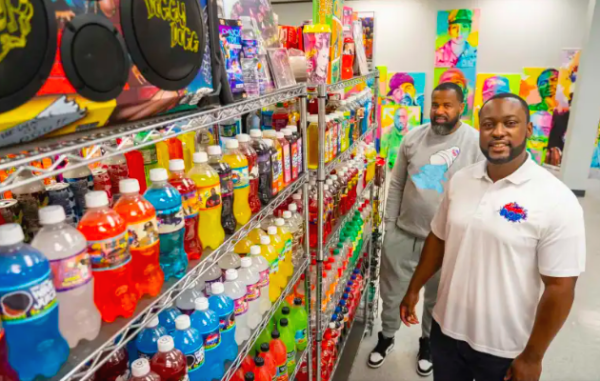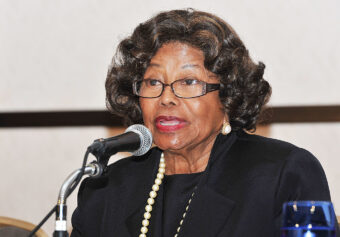A self-acclaimed beverage connoisseur, Charleston Wilson seized an opportunity in the industry to quench consumers’ thirst for $500 a pop, literally.
Travis Scott and Paul Wall are among customers snapping up Exotic Pop‘s expensive exclusive sodas. The company’s products range from an affordable $5 up to $500. Exotic Pop sells rare and imported soft drinks and snacks, such as a 12-ounce can of Dr. Pepper Fantastic Chocolate, which goes for $50 to an unopened box of Michael Jordan “Space Jam” Wheaties, listed for sale at $500.

“Everybody wants something that nobody has. For the longest, it’s been jewelry, car, shoes, clothes. That’s been recycled for so long through music videos and social media,” Charleston Wilson, Exotic Pop founder and CEO, told The Houston Chronicle.
In 2021, Exotic Pop made $6 million in profits, according to Wilson. Now the company wants to bite off a larger chunk of the $400 billion food and beverage industry.
Traveling overseas influenced Wilson’s experimentation to concoct custom sodas with unique flavors that are hard to find, or even unheard of in the U.S. These authentic flavors opened the door for him to capture a new market.
“Our culture has evolved with fashion, music, and art, but the beverage industry hasn’t,” said Wilson. “By bringing in flavors from other parts of the country, I understood that I could charge a premium for it.”
The 20 oz. bottles wrapped in colorful plastic labels with animated caricatures of hip-hop celebrities are hard to miss at gas stations or neighborhood convenience stores. Securing deals with local distributors is how Wilson established solid network partners and suppliers. The Houston-based company has captured the attention of consumers and music giants such as Drake, with them sliding into his DMs.
Exotic Pop’s own line of beverages features such Houston rap icons as DJ Screw, Bun B, Fat Pat and Too Short. On every bottle, there is a QR code that links to the artist’s music.
“By him being an international icon, I started receiving messages from people all over the world telling me what their favorite drinks are,” Wilson said. “With that data, I was able to discover that cream sodas were very popular.”
Some of the popular sodas like blueberry bubblegum, pineapple lemonade along with their line of cream sodas, cost, at minimum, $5. However, limited sodas that are formulated for entertainers have price tags well in the hundreds of dollars.
Founded in 2016, Exotic Pop expanded outside of its flagship soda beverages. Wilson’s portfolio of snacks that he’s sub-branded by partnering with legacy companies like Pepsi is an extension to other lines of business in consumer goods.
Keeping exclusivity in mind, Wilson’s bottom line growth continues to increase by strategically controlling supply by limiting the amount of inventory for drinks that he has on the market so that he can control the price point.
“We always wanted to keep the integrity of the brand by not oversaturating the market,” he said. For example, a collaboration with a record company for an album release we’ll only produce a certain amount of sodas in that agreement.”
One deal that’s on the horizon is a partnership with legendary rap artist Snoop Dogg and Death Row Record. The “Blue Cream” branded soda that’ll be released in the next few months “will be a tribute to his doggy style album cover,” Wilson said.
The drink is likely to retail at $299 a bottle and will be sold across the country, Wilson told Finurah.
Eyeing another robust distribution line, Exotic Pop sees a future in larger grocery chains. But business momentum doesn’t come without roadblocks. Strong revenue and profit over the last year positioned Wilson to consider expanding operations to increase manufacturing capacity. However, accessing lending from banks is the bottleneck.
After filling out several loan applications, Wilson said he feels shunned.
“We started the loan process in November last year and we’re still stuck in underwriting so I feel like we’re in a holding pattern.”
Studies have consistently shown that African-American business owners’ approval for financing their business ventures is more likely to be denied than their white counterparts. But despite what data shows, resilience is what Wilson believes will keep his company afloat.
“We’re so connected to our community and our consumer base is so strong, we’re here to stay, whether the banks help us or not.”




